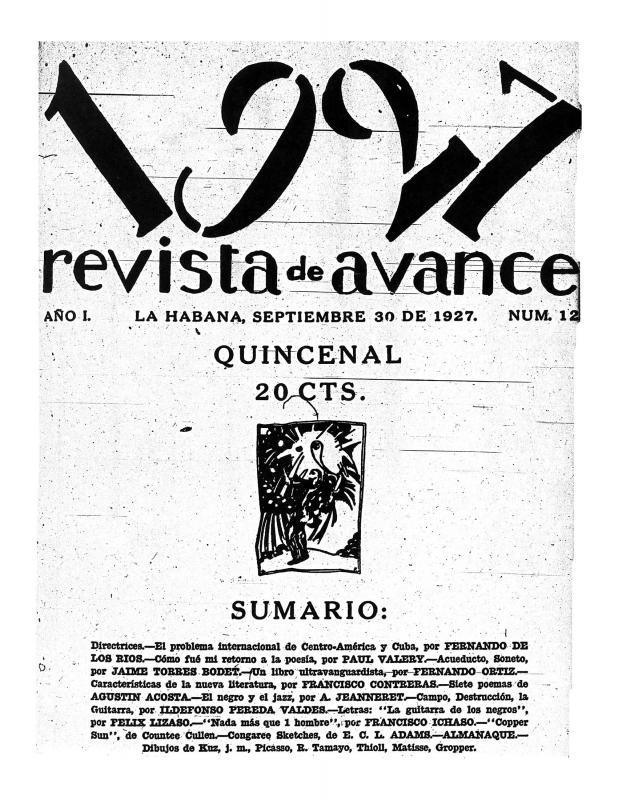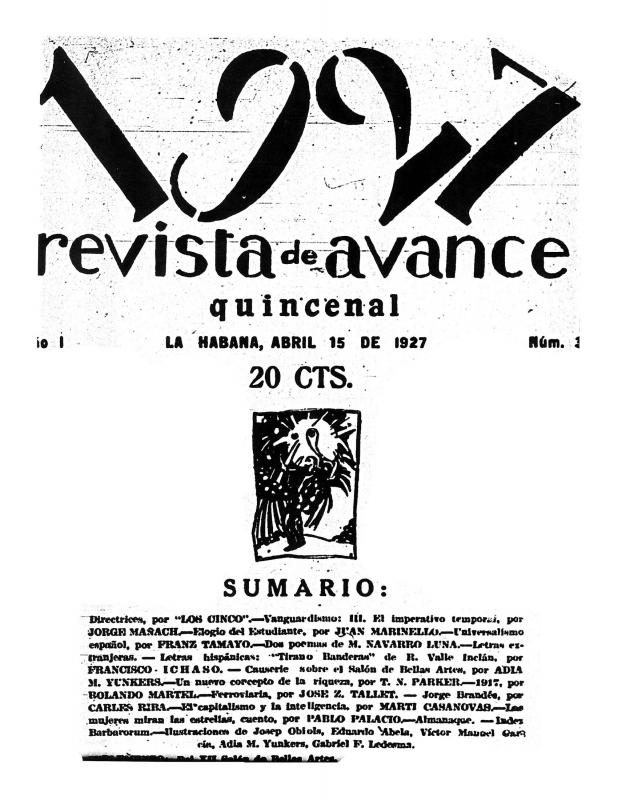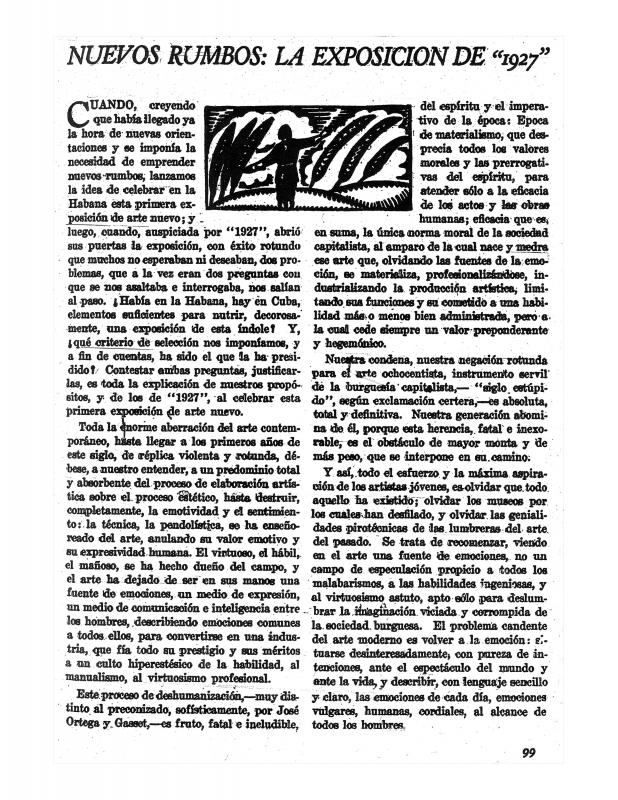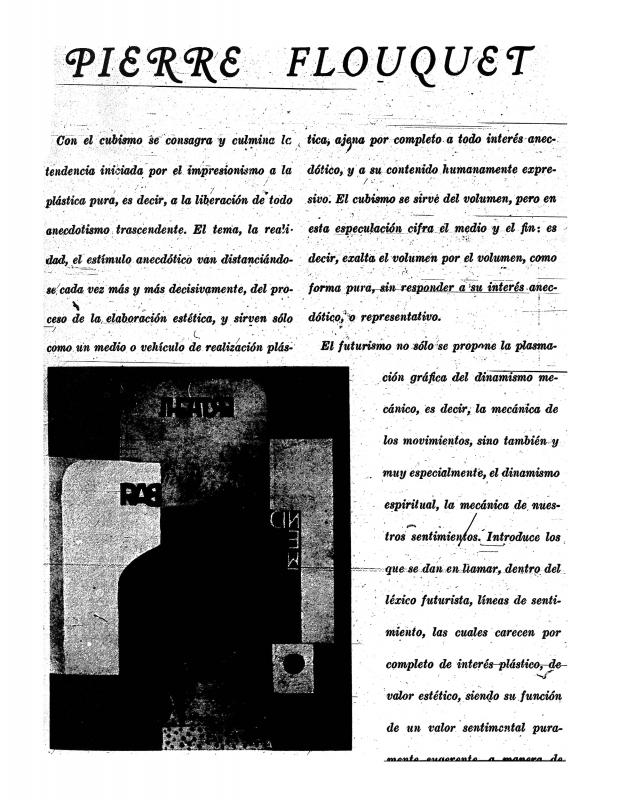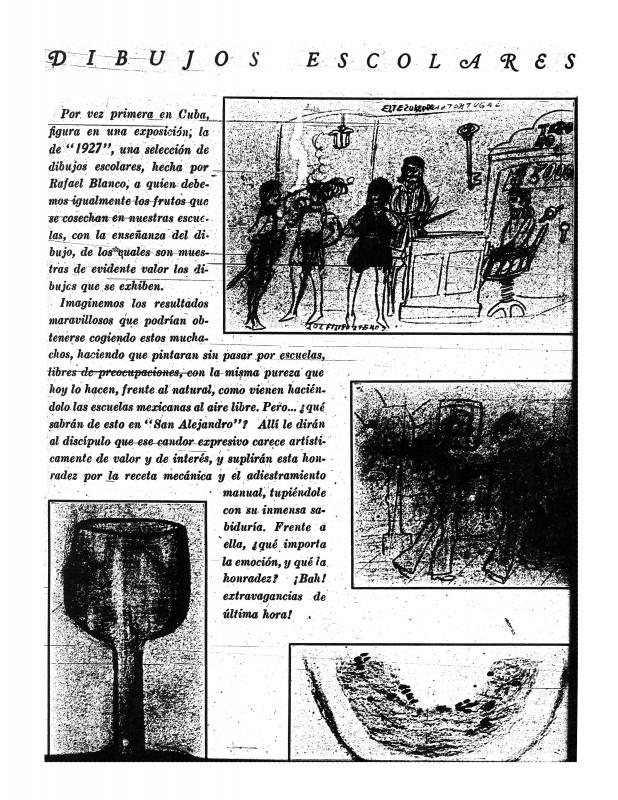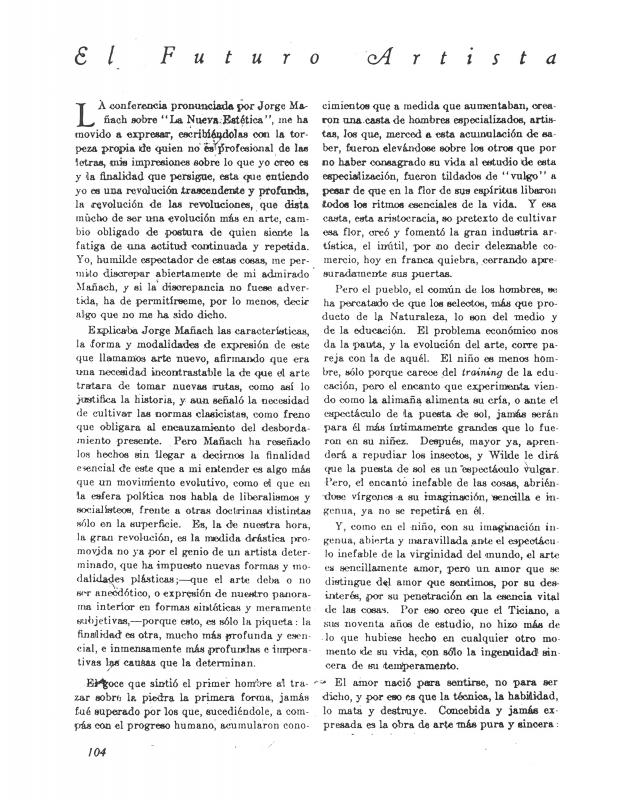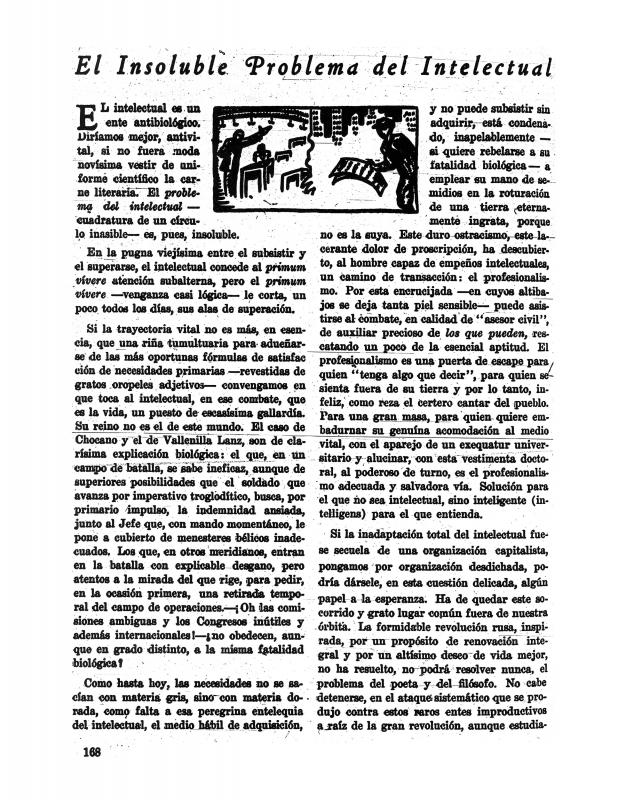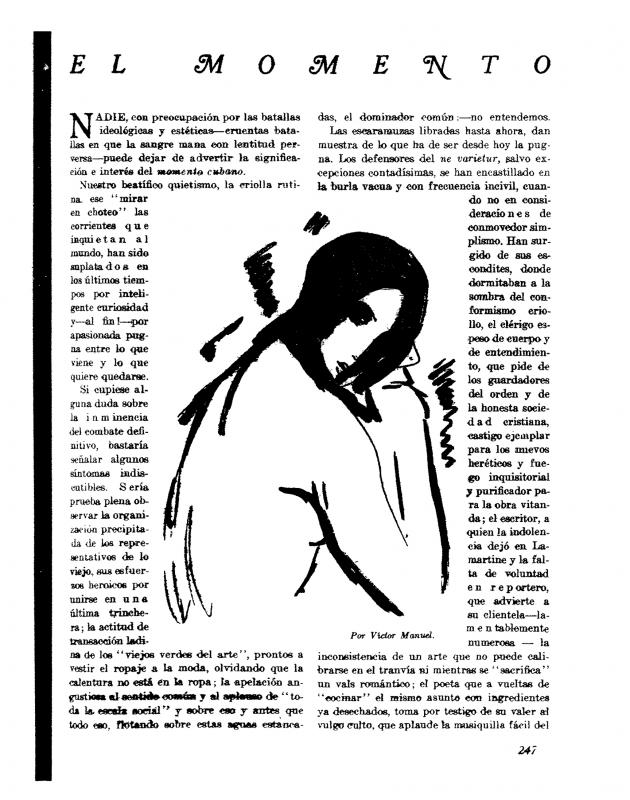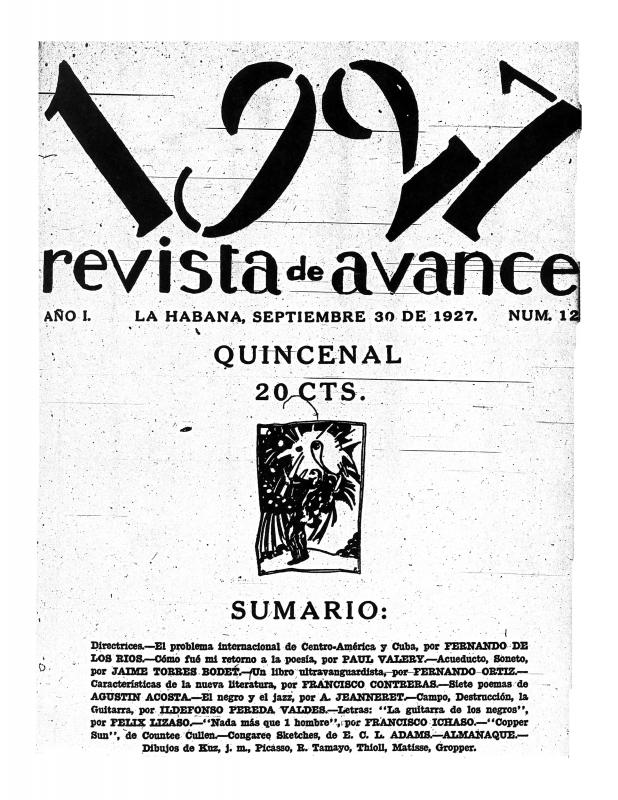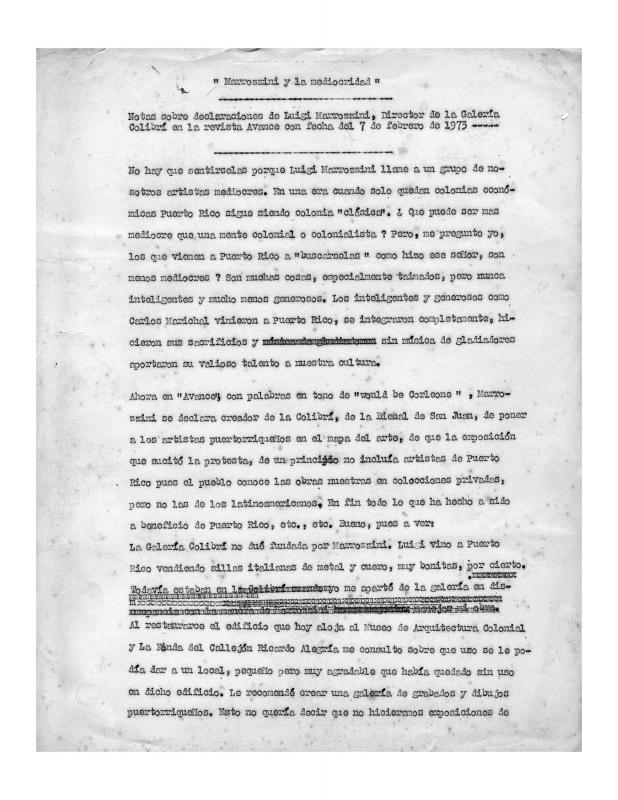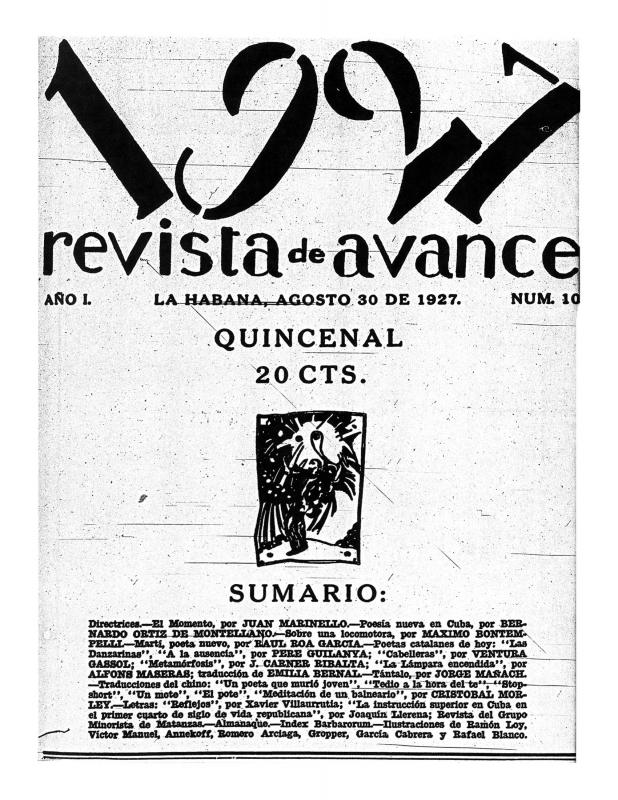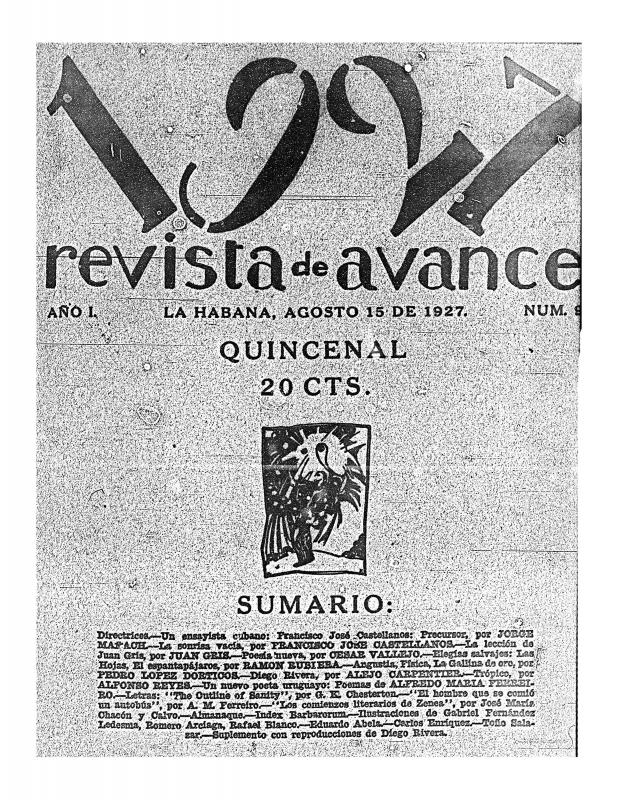The ideas of the Catalan journalist Martí Casanovas reflect the intellectual concerns that arose in the period just after World War I in the spirit of hope generated by the Russian Revolution of 1917. When he brings up the social and political processes going on in Europe, which had also led to the establishment of the Soviet Union, Casanovas shows how profoundly he has been affected by Marxist-Leninist ideology. The writer makes no direct reference to the relationship between the capitalist impetus and US economic and imperialistic policies. However, having been a member of the Grupo Minorista, Casanovas aims his criticisms at the socioeconomic and power relationships that would be generated by annexation. While it is true that Revista de avance was conceived as a cultural journal, the critical vision of Martí Casanovas clarified their intention to consider artistic processes as one element of social and political processes. The writer’s affiliation with the Cuban Communist Party and his pointed criticism of the Machado administration (1925–33) landed him in jail, and he was expelled from Cuba months after publishing this text. [For other essays and texts published in Revista de avance, see the following in the ICAA digital archive: “Índice del Tomo I (Números 1 al 12 inclusive)” (anonymous) (doc. no. 1300106); by Martí Casanovas “Almanaque” (doc. no. 1299709), “Almanaque: Exposición Gattorno” (doc. no. 1298711), “Nuevos Rumbos: La exposición de ‘1927’” (doc. no. 1280155), and “Pierre Flouquet” (doc. no. 1299881); “[El arte nuestro debe ser instintiva o intuitivamente americano...],” by Víctor Andrés Belaúnde (doc. no. 832310); “[Basta con que revele una honda...],” by Carlos Préndez Saldías (doc. no. 832258); “Causerie sobre el Salón de Bellas Artes,” by Adia M. Yunkers (doc. no. 1298799); “[Creo que el artista americano...],” by Ildefonso Pereda Valdés (doc. no. 832328); “Dibujos escolares” (anonymous) (doc. no. 1299805); “Diego Rivera,” by Alejo Carpentier (doc. no. 1299962); “Eduardo Abela: pintor cubano,” by Adolfo Zamora (doc. no. 1280283); “El futuro artista,” by Eduardo Abela (doc. no. 1299789); by Juan Marinello “El insoluble problema del intelectual” (doc. no. 1299897), and “El momento” (doc. no. 1125671); “El prejuicio en el ritmo intelectual de las épocas,” by Francisco Ichaso (doc. no. 1299741); “El problema internacional de Centro América y Cuba,” by Fernando de los Ríos (doc. no. 1300090); “La cuestión del negro” (anonymous) (doc. no. 1280299); “La lección de Juan Gris,” by Juan Gris (doc. no. 1299946); “Marrozzini y la mediocridad: notas sobre declaraciones de Luigi Marrozzini,” by Lorenzo Homar (doc. no. 861634); “Martí: Poeta Nuevo,” by Raúl Roa García (doc. no. 1300003); “Nacionalismo y Costumbrismo,” by Severo García Pérez (doc. no. 1300058); “Nacionalismos en América,” by Eugenio d’Ors (doc. no. 1299757); “Nota de los 5—2,” by Jorge Mañach et al. (doc. no. 1299930); “Programa de criolledad,” by Félix Lizaso (doc. no. 1125414); and “Vértice del gusto nuevo,” by Jorge Mañach (doc. no. 832383)].

